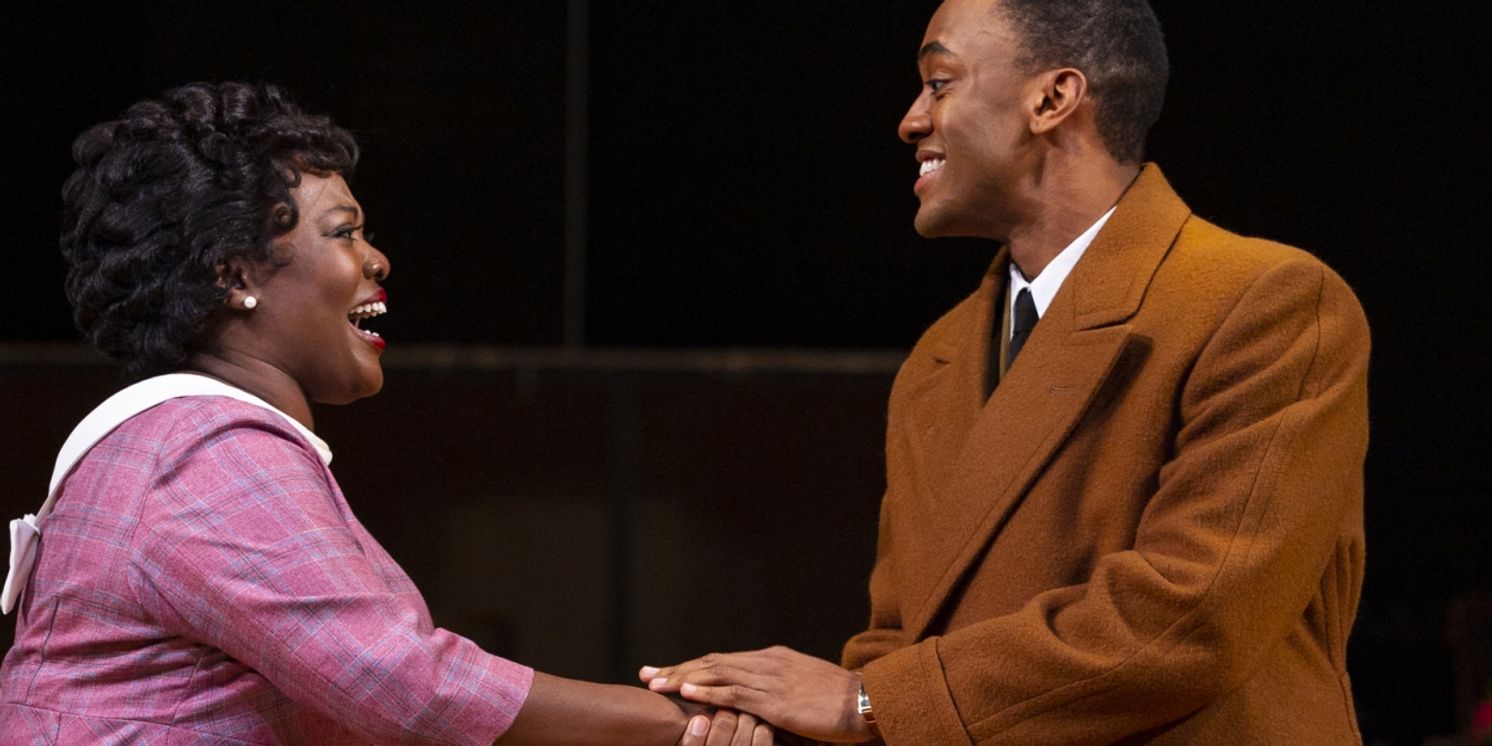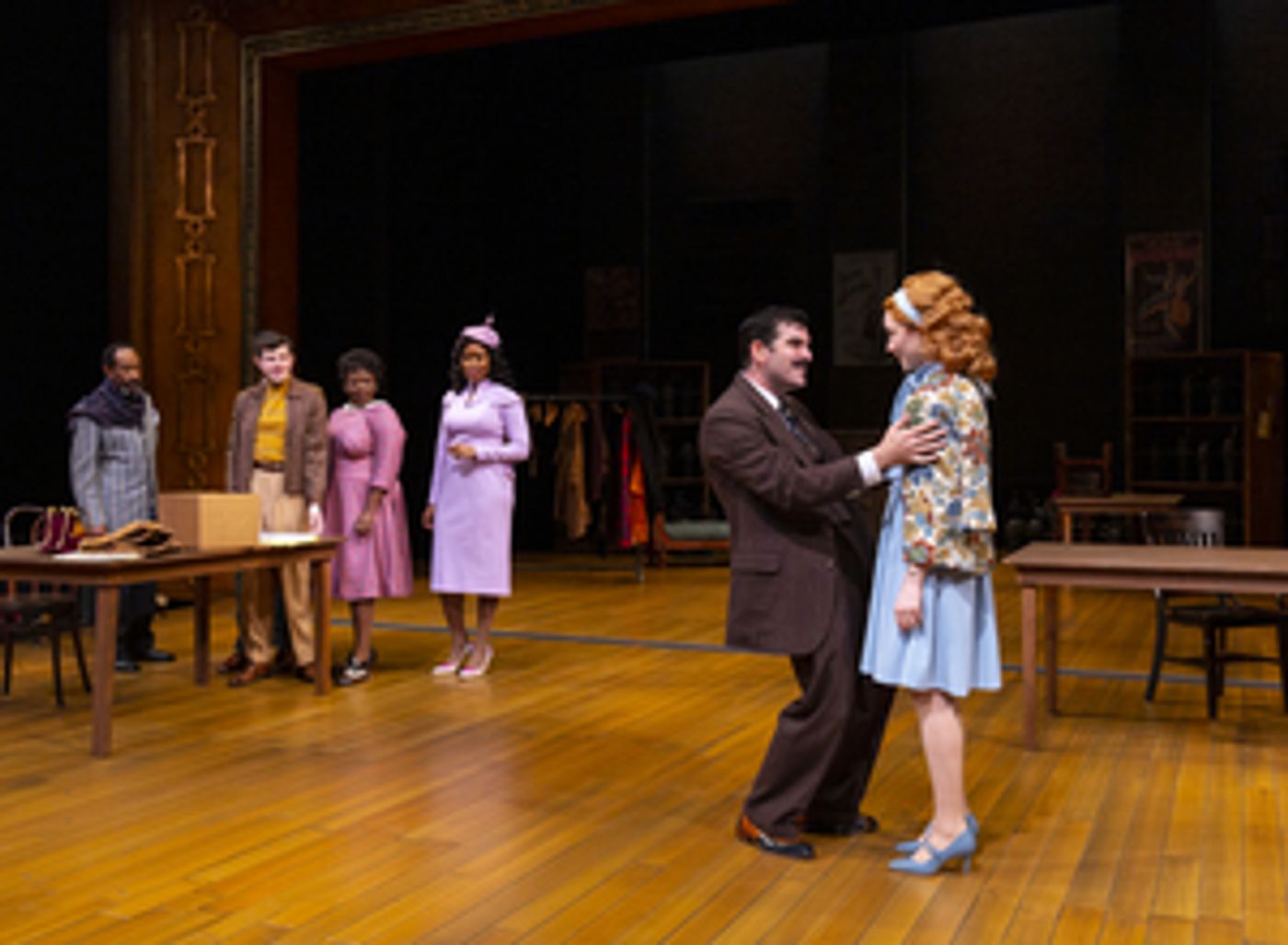Review: TROUBLE IN MIND at Hartford Stage
Alice Childress's play runs through June 18


Alice Childress’s sharp, witty, and ultimately heart-breaking script, Trouble in Mind, is receiving a problematic production at Hartford Stage, in Hartford, Connecticut. One is very grateful that this play has been rescued from relative obscurity—first in its 2021 Broadway revival, and now here. However, director Christopher D. Betts paces the action—2 hours and 30 minutes of it—too slowly and allows several of the cast members to over-act their roles to the point that we stop believing in their characters and, even more disturbingly, nearly lose both the humor and the depth of Childress’s story.
The play, first performed off-Broadway in 1955, gives us a realistic portrait of a mixed-race rehearsal for a wretchedly bad drama about racism—Chaos in Belleville—written by a white man. Chaos in Belleville is meant to show a white audience the difficulties that Black people face, but we soon learn that the plot of this play-within-a-play only reinforces all-too-familiar stereotypes and horrors. The Black actors understand this all too well, and deal with it in their own ways. The white, dictatorial director (John Bambery) is happy to ignore this fact, preferring instead to instruct, by bullying, his actors in the techniques of Method Acting and to harass the women in the cast by alternately yelling at them, dragging them around the stage, and calling them “sweetheart” and “darling.”
Anchoring Trouble in Mind is the terrific performance of Heather Alicia Simms, as Wiletta Mayer, a seasoned actress who longs to play a legitimate role in a strong production, but who has been stuck playing one form of “Mammy” or another throughout her career. We learn that she has stayed employed by always agreeing with her white directors and fellow actors. She tells young John Nevins (a strong Sideeq Heard), who plays her rebellious son in Chaos in Belleville, “Don’t get too cocky; they don’t like that,” and advises him to “Laugh! Laugh at everything they say, makes ‘em feel superior.” As this strategy begins to crack under the weight of the racism in the script and in the room, Simms makes Wiletta’s arc—and especially her final scene and speech—crystal clear and poignant. We are infuriated on her behalf, as we see perfectly the talent and brilliance that her director, and her world, cannot or will not recognize.
In addition to Simms and Heard, Chelsea Lee Williams, playing Millie—who in turn plays another of the put-upon women in Chaos in Belleville—has perfect timing and a dry delivery that shows us what Childress’s play could be if the director had allowed for more of the backstage comedy to show through before the plot bends towards despair. Richmond Hoxie, as Henry, the elderly white doorman, is also believable and touching.
Beyond these, though, Betts has directed the rest of the cast towards over-the-top performances, perhaps misconstruing or mistrusting Childress’s text. Bambery, as the director Al Manners (his name a sly joke in itself), comes across as a one-dimensional villain when it would be much more interesting to understand something, at least, of his interior life. Sarah Lyddan, as the white ingénue Judy, has a few genuinely amusing moments, but mainly she has been encouraged to deliver an over-the-top characterization. Most troubling is the performance of Michael Rogers, as long-successful Black character actor Sheldon Forrester. Sheldon is an expert at staying safely in the background and agreeing with everything his director says or asks. He has a remarkable speech towards the end of the play that should inform everything that comes before and after, but instead—since Rogers, too, has been directed to over-act and, worse, under-enunciate—the moment, shocking though it is, seems to come out of nowhere and fades all too quickly.
The design team has created a nicely detailed set (Baron E. Pugh) that places us perfectly in a 1955 rehearsal hall. Emma Deane lights the set well, and Jahise Lebouef’s costumes along with Carissa Thorlakson’s wigs tell a great deal about the characters, especially Wiletta and Millie.
Hartford Stage is to be applauded for continuing the life of this terrific play, even if one wishes that this production were more nuanced, with more humor and less histrionics. Childress was a seasoned actor herself, as well as an experienced playwright, and her script balances wit and message well. To keep this balance may not be easy, but it is essential if a director is to fully reveal the troubled heart of Trouble in Mind.
For tickets ($30 and up), call Hartford Stage, 50 Church Street, Hartford at 860-527-5151 or online at HartfordStage.org. Performances are Tuesday to Thursday at 7:30 p.m., Friday and Saturday at 8 p.m., and Saturday and Sunday and select Wednesdays at 2 p.m.
Photo Credit: T. Charles Erickson
Reader Reviews

Videos

